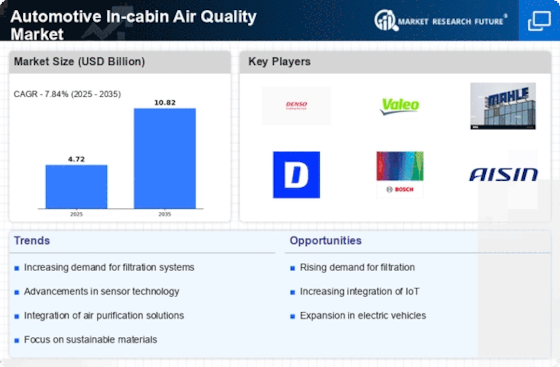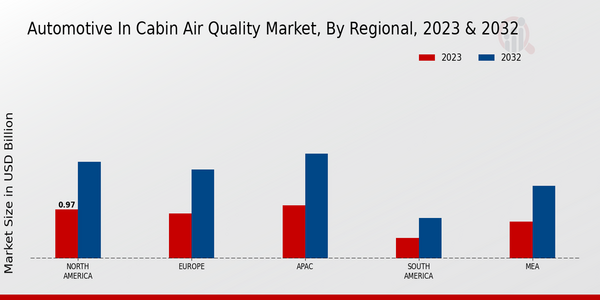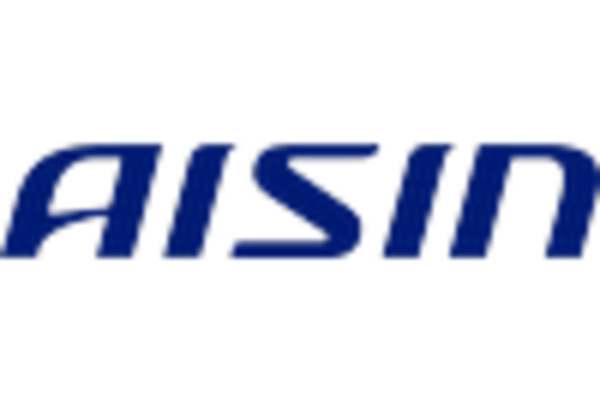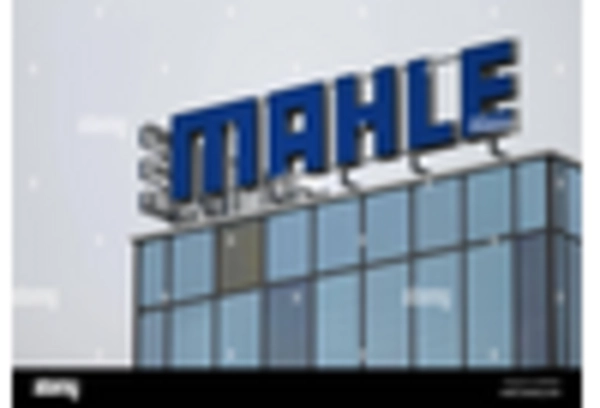The Automotive In-cabin Air Quality Market has seen significant growth and innovation in recent years as consumer awareness of air quality and environmental concerns has risen. As more individuals recognize the importance of maintaining a healthy in-cabin environment, automakers are increasingly investing in advanced technologies aimed at improving air quality.
The market is characterized by intense competition among leading automotive manufacturers, each striving to position themselves as leaders in in-cabin air quality management solutions. This competitive landscape is shaped by various factors, including technological advancements, regulatory changes, and evolving consumer preferences.
With the growing demand for electric vehicles and sustainable practices, automakers are also integrating air purification systems and HEPA filters, which adds another layer to the competition as companies vie to offer the highest quality and efficiency in air filtration systems.
In assessing the presence of Toyota in the Automotive In-cabin Air Quality Market, the company has established itself as a formidable player through its commitment to sustainability and innovation. Toyota's reputation for reliability and quality extends to its in-cabin air quality solutions, which focus on utilizing advanced filtration systems that minimize pollutants and particulates.
The company has embraced cutting-edge technologies, such as active carbon filters and cabin air purification systems, that offer superior air quality for passengers. Toyota's dedication to research and development allows it to stay ahead of emerging trends, ensuring its vehicles are equipped with the latest air quality enhancements.
Additionally, Toyota's extensive experience in the automotive sector enables it to leverage partnerships with technology providers, further strengthening its competitive position in the market.
FCA has made significant strides in the Automotive In-cabin Air Quality Market, showcasing a commitment to enhancing the driving experience through superior air quality management solutions. The company has developed advanced in-cabin air filtration systems that effectively combat airborne contaminants, thereby ensuring a healthier environment for drivers and passengers alike.
FCA's integration of innovative technologies, such as climate control systems that monitor and adjust air quality based on real-time data, sets it apart in this competitive landscape. Furthermore, its focus on customer satisfaction drives the continuous improvement of air quality features, responding to increasingly stringent air quality regulations and consumer demands.
By prioritizing in-cabin air quality, FCA positions itself as a forward-thinking automaker dedicated to the well-being of its customers, bolstering its reputation in the evolving automotive market.


















Leave a Comment